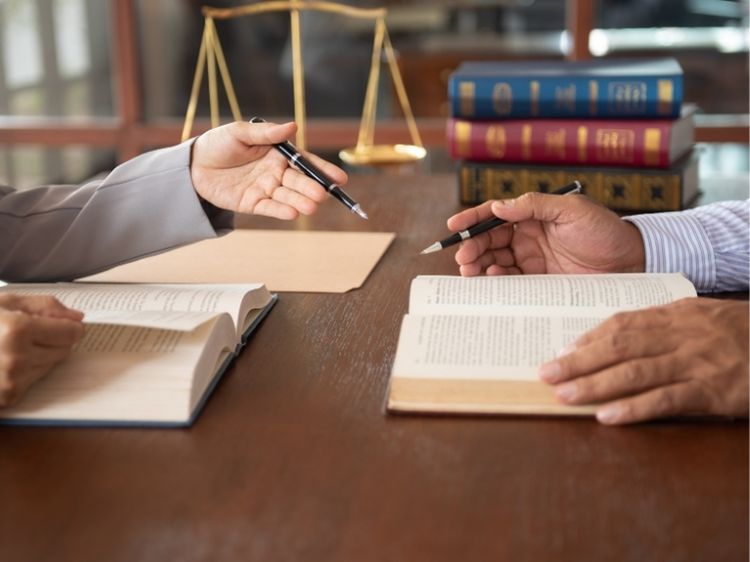Product Liability Tort Law: Understanding the Legal Framework
Ever wondered what happens when a product you buy turns out to be defective and causes harm? That’s where product liability tort law steps in. It’s a legal framework that holds manufacturers, distributors, and sellers accountable for putting unsafe products into the hands of consumers. This article dives deep into the intricacies of product liability tort law, offering insights into its importance, key elements, and what it means for both consumers and businesses.
What is Product Liability Tort Law?
Product liability tort law is a branch of tort law that deals with the responsibility of any party involved in the manufacturing or distribution chain of a product that causes harm. Unlike contract law, which requires a direct relationship between the parties, product liability focuses on the duty of care owed to consumers, even if they aren’t directly involved in the purchase.
The Importance of Product Liability Tort Law
Product liability tort law plays a crucial role in ensuring consumer safety. By holding companies accountable, it discourages negligence and promotes higher standards in the manufacturing process. Without this legal protection, consumers would have little recourse against large corporations when defective products cause injury or damage.
Key Elements of Product Liability Tort Law
Understanding the fundamental components of product liability tort law is essential for anyone navigating this complex legal area. These elements help determine whether a product liability claim is valid and what must be proven in court.
1. Strict Liability
One of the most critical aspects of product liability tort law is the concept of strict liability. Under strict liability, a manufacturer can be held liable for a defective product even if they exercised all possible care during the manufacturing process. The focus is on the product’s defectiveness, not the manufacturer’s conduct. This principle is particularly beneficial for consumers, as they don’t need to prove negligence—only that the product was defective and caused harm.
2. Negligence
While strict liability is a significant part of product liability tort law, negligence still plays a role. Negligence involves proving that a manufacturer or seller failed to exercise reasonable care in the design, production, or warning labels of a product. For example, if a company neglects to test a product adequately before releasing it to the market, they can be held liable for any resulting damages.
3. Breach of Warranty
Warranties are promises made by manufacturers or sellers regarding the quality or safety of a product. When a product fails to meet these promises, it constitutes a breach of warranty. There are two main types of warranties: express and implied. An express warranty is a specific guarantee provided by the seller, while an implied warranty is an unspoken assurance that a product will function as expected. Breach of either can lead to a product liability claim.
4. Types of Defects
Product liability claims typically fall into three categories based on the type of defect:
- Design Defects: These occur when a product is inherently dangerous due to its design, even if manufactured correctly. For instance, a car model with a high tendency to roll over during sharp turns has a design defect.
- Manufacturing Defects: These arise when something goes wrong during the manufacturing process, resulting in a product that deviates from its intended design. A batch of contaminated medication is an example of a manufacturing defect.
- Marketing Defects: Also known as failure to warn, these defects occur when a product lacks adequate instructions or warnings about potential risks. If a household cleaner doesn’t warn users to wear gloves, leading to skin burns, it could be considered a marketing defect.
How Product Liability Tort Law Protects Consumers
Product liability tort law offers robust protection for consumers, ensuring that those harmed by defective products can seek compensation. The law recognizes that consumers often lack the expertise to identify unsafe products, placing the burden of safety on manufacturers and sellers.
1. Compensation for Damages
One of the primary benefits of product liability tort law is the ability for injured parties to seek compensation for their damages. This can include medical expenses, lost wages, pain and suffering, and in some cases, punitive damages aimed at punishing particularly egregious behavior by the manufacturer.
2. Promoting Safer Products
By holding companies accountable for defective products, product liability tort law incentivizes businesses to prioritize safety in their design and manufacturing processes. This leads to safer products on the market and reduces the likelihood of harm to consumers.
3. Balancing Power
Product liability tort law also helps balance the power dynamics between consumers and large corporations. It provides a legal avenue for individuals to take on powerful companies that might otherwise avoid accountability.
The Challenges of Product Liability Tort Law
While product liability tort law offers significant protections, it also presents challenges for both consumers and businesses. Understanding these challenges is crucial for navigating the legal landscape effectively.
1. Proving Defects
One of the most significant challenges in product liability cases is proving that a defect existed and directly caused the injury. This often requires expert testimony and substantial evidence, which can be costly and time-consuming to gather.
2. Statutes of Limitations
Product liability claims are subject to statutes of limitations, which vary by jurisdiction. These laws limit the time frame within which a claim can be filed, making it essential for injured parties to act quickly.
3. Defensive Strategies by Companies
Companies often employ various defensive strategies to avoid liability, such as arguing that the consumer misused the product or that the product met industry standards. These defenses can complicate the litigation process and make it more challenging for consumers to succeed in their claims.
FAQs about Product Liability Tort Law
Q: What types of products are covered under product liability tort law?
A: Product liability tort law covers a wide range of products, including consumer goods, pharmaceuticals, automobiles, and even food items. Essentially, any product that reaches the consumer can be subject to liability if it is found to be defective.
Q: Can I sue if I was injured by a product that was used incorrectly?
A: It depends on the circumstances. If the misuse was foreseeable by the manufacturer, they might still be held liable. However, if the product was used in a way that was clearly against the instructions or intended use, the manufacturer might have a valid defense against the claim.
Q: What should I do if I’m injured by a defective product?
A: If you’re injured by a defective product, seek medical attention immediately. Then, preserve the product and any evidence related to the incident. Contact an attorney who specializes in product liability cases to discuss your legal options.
Q: How long do I have to file a product liability claim?
A: The statute of limitations for filing a product liability claim varies by state but typically ranges from one to six years. It’s important to consult with an attorney as soon as possible to ensure you don’t miss the deadline.
Q: Are there any defenses a manufacturer can use against a product liability claim?
A: Yes, common defenses include arguing that the product was not defective, the consumer misused the product, or that the product’s risks were well-known and accepted by the consumer.
Conclusion
Product liability tort law serves as a vital tool for protecting consumers from the dangers of defective products. By holding manufacturers, distributors, and sellers accountable, it ensures that safety remains a top priority in the marketplace. While navigating product liability claims can be challenging, understanding the legal framework is the first step in seeking justice and compensation. If you ever find yourself harmed by a defective product, knowing your rights under product liability tort law can make all the difference.






